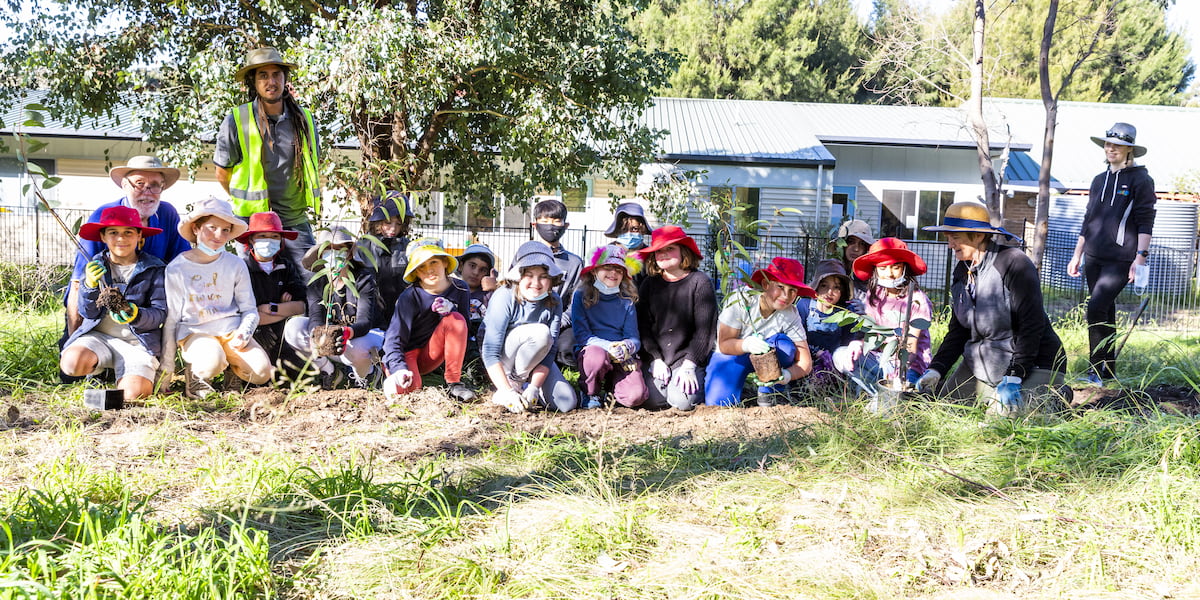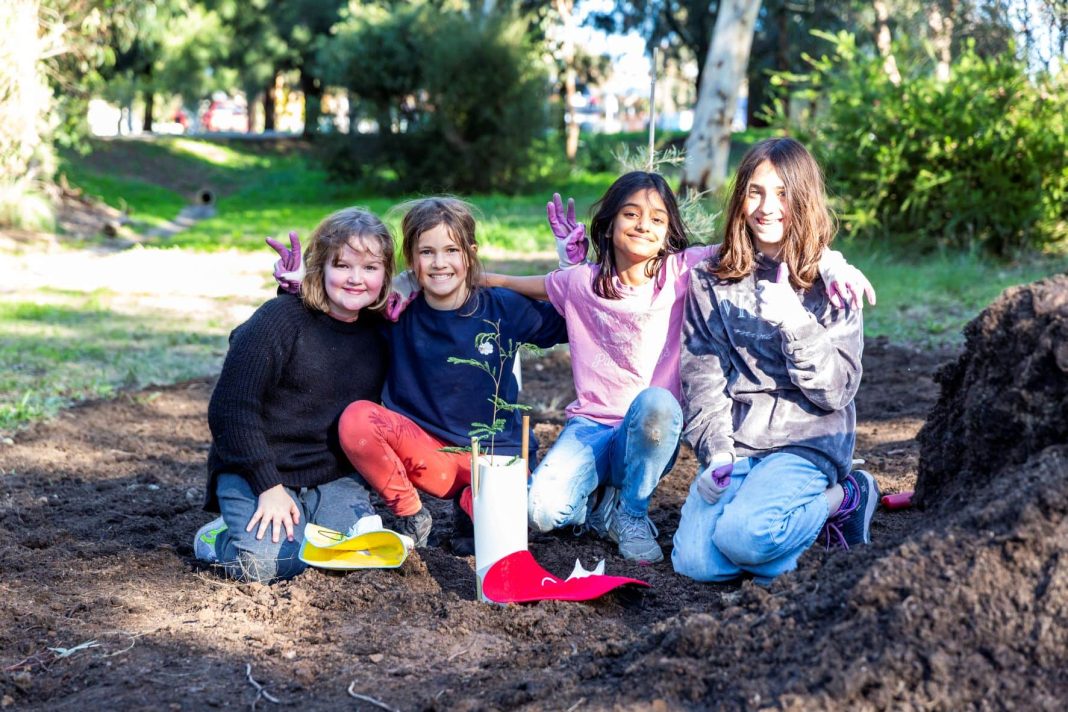Organisations around Canberra recently received charming postcards featuring the Gang-gang cockatoo, an invitation to view the students at Canberra Montessori School plant habitat for the endangered species.
On Thursday 19 May, Glenn Watson’s Cycle 3 (grades 4-6) Karri class planted Indigenous trees in a previously unused garden walkway, following two terms of researching and surveying Gang-gangs.
“They’re gaga about Gang-gangs,” said Mr Watson about his 19 pupils, who’ve been studying under the auspices of Bird Life Australia. According to Mr Watson, the children took a liking to the struggling Gang-gangs immediately.
To rejuvenate the ‘Indigenous Walk,’ the Birdlife Australia Gang-gangs Project has provided 20 saplings to be planted by the children, “Gums and Acacias, what Gang-gangs like”.
The school community has also provided 20 more plants, with hundreds pledged to come. Mr Watson and the children hope to see Gang-gangs return to their school in 10 years’ time.
“I’ve been teaching for nearly 40 years now. Being involved in the community and taking some worthwhile action is something that we encourage Montessori children to do, and they tend to do it very well,” he said.
“They’re great researchers and they really like practical action.
“It is just so important for the children here, and for their children, that we actually have an Earth and an environment that has great diversity and will be able to cope with the difficulties it’s going to face.
“I often say ‘My generation has messed things up and many of them still refuse to do anything about it, but we have to do something.’”
Aaron Chatfield, a Gamilaraay man born and raised here on Ngunnawal country, will continue to guide the children in their next steps of growing a Yuki Mulch path, and lining it with native plants.
Mr Chatfield noted that if there was one message he hopes the students will walk away with, it’s to start looking at our native plants not only as plants, “but also see what use we can get out of them”.
“Our garden trail here is not only creating habitat for the Gang-gangs, but down the track, we’re going to be planting native plant beds that the kids can then harvest for weaving plants.”
Through Yarning Circle, the children will learn how to weave the foliage into ropes, nets, and baskets.
“Next, we’re going to plant edible beds that the kids can then harvest and use in their cooking classes.”
The third garden beds will grow medicine plants that have been used for generations by Ngunnawal people.
“I can see the change in the school society, adapting, and becoming more accepting of the Indigenous culture,” said Mr Chatfield. “Montessori seems to be front of the game.”

Ten-year-old Greta Martin has been looking forward to the tree planting day since she first saw a male and female Gang-gangs near her house.
When asked what she likes so much about them, she grinned toothily. “Strawberry heads,” she replied.
“[Tree planting] has been easier than I expected. My favourite part was planting Bobby” – a sapling at the entrance of the Indigenous Walk.
Greta says that it’s important kids her age learn how to protect the environment “so that when we grow up, we don’t have a world where the skies are grey”.
Sitting on a mound of dirt with spade in hand, nine-year-old Kit says she was very excited to take part in the planting.
“I’ve done some gardening with my mum, but I’ve never really planted a tree that will grow up and have such a change on the environment.
“[Gang-gangs] have been declared endangered and I’m really happy thinking that my tree might one day house some.”
Kit says that she’ll come back and visit her tree when it’s fully grown.
“Kids my age, when they have great great-grandchildren, it’s important that they don’t look outside and say, ‘I wish the Gang-gangs were here’,” she pondered. “Or I wished magpies weren’t endangered.”
Best friends Urooba, nine, and Alina, 11, were excited to spend the day in the dirt together.
“We want to help the environment and stop climate change,” said Urooba softly.
“Think about it like this, in 30 years the sky will be grey and there’ll be no green,” Alina said. “So, if we make a change now, then we can prevent that other stuff happening in the future.”
When asked whether her class’s efforts to prevent that future made her happy, Alina quoted a hero.
“It makes me happy that we’re doing something about it, but I think it makes me nervous, too. It’s like when Mr Incredible says, ‘I feel like I’m the maid. Every time I clean up a mess, it always comes back.’”

From the mouth of babes comes a message as the dust settles from the recent election: Keep the world clean for 10 minutes, give the Gang-gangs, and the next generation, a break.
Get all the latest Canberra news, sport, entertainment, lifestyle, competitions and more delivered straight to your inbox with the Canberra Daily Daily Newsletter. Sign up here.



